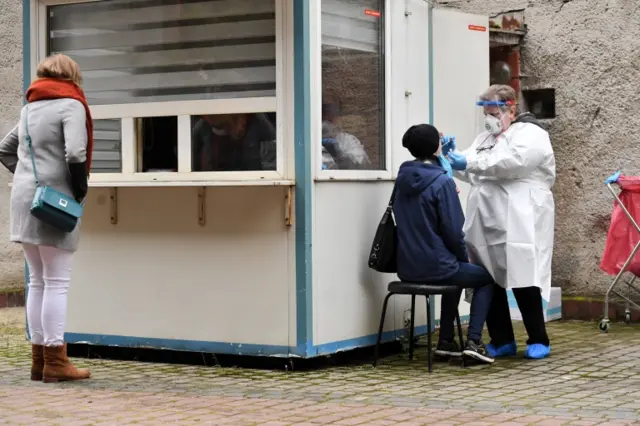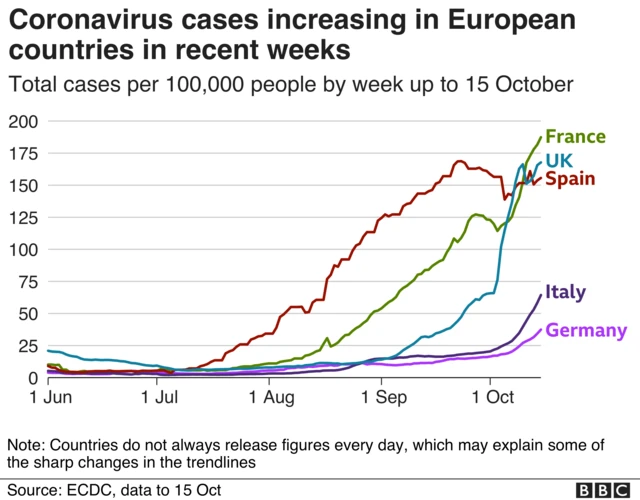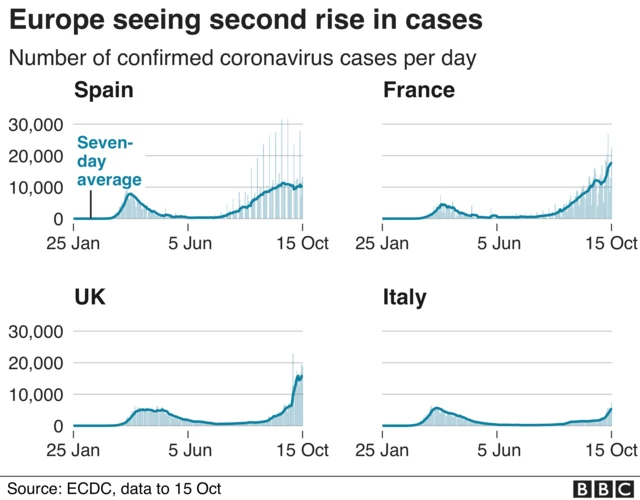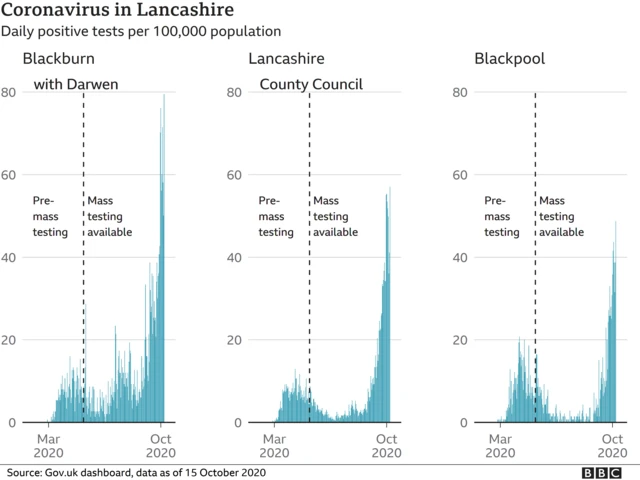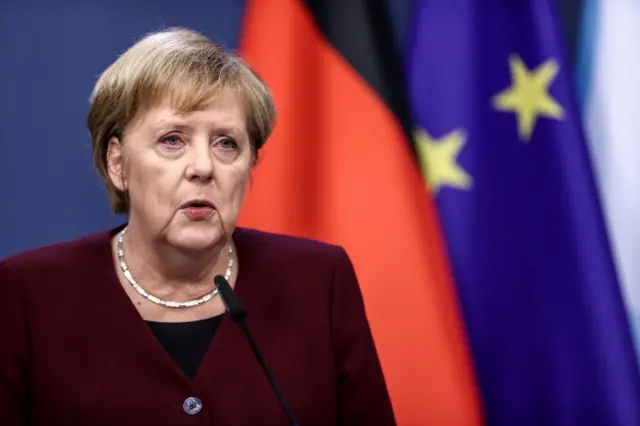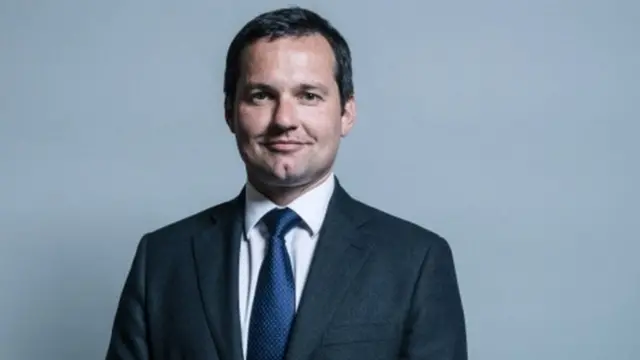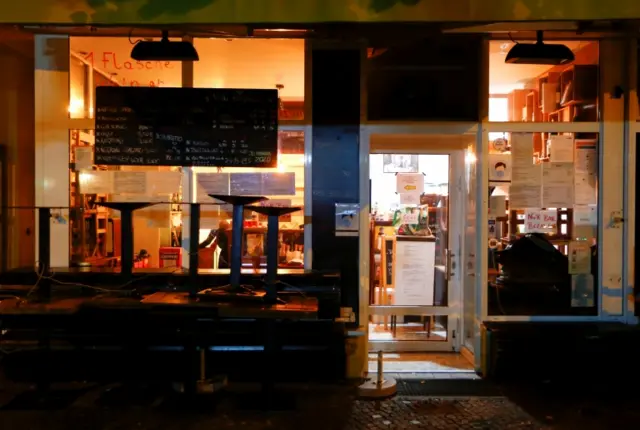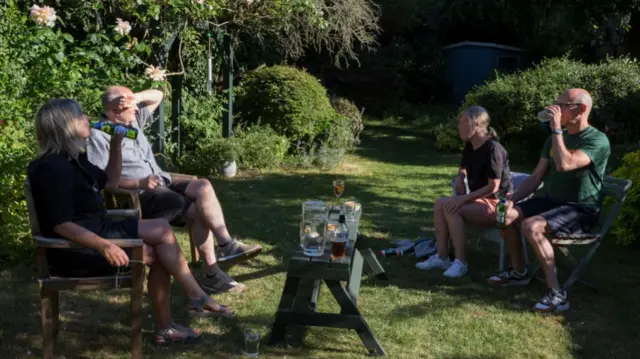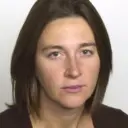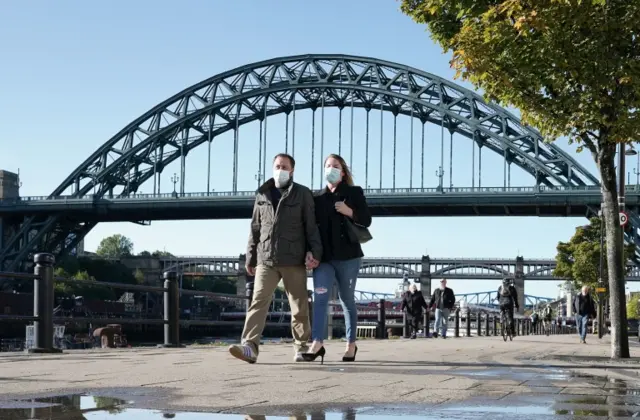Slovenia tightens restrictions as cases spikepublished at 14:50 BST 16 October 2020
Guy Delauney
BBC News, Belgrade
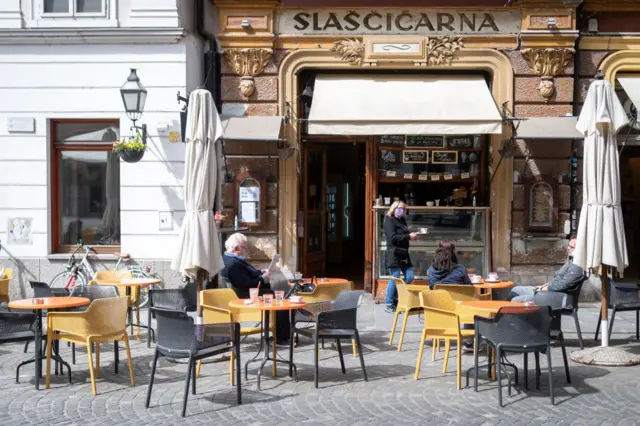 Image source, AFP
Image source, AFPCity residents won't be able to escape urban life as easily with the new restrictions
Internal barriers have come crashing down in Slovenia after the government declared most of the country was in the "red zone" for coronavirus.
Red-zone residents may no longer travel beyond the borders of their home region. The ruling affects seven of the country's 12 regions – including central Slovenia, which takes in the capital, Ljubljana.
The restrictions may not be as tight as they were in the spring, when Slovenians were confined to municipal boundaries - with wardens manning checkpoints to police the policy. But city residents planning an autumn escape to the coast, lakes or mountains may feel that the walls are starting to close in again.
Working out frustration in next weekend's Ljubljana marathon will not be an option either. The event normally attracts 14,000 runners - but the organisers say that even with numbers limited to less than a 10th of that figure, the surge in Covid-19 cases "prevented us from carrying out the event safely".
Sports facilities in red-zone regions will close on Saturday - as will restaurants and bars, although takeaway and home delivery will still be an option. And schools are moving online for all classes apart from the first five years.
The government is hoping the measures will reduce the incidence of coronavirus by the time they review the restrictions in a fortnight.
Slovenia reported record numbers of new cases of Covid-19 on consecutive days this week, as the 14-day incidence rate rose well beyond 200 per 100,000 people.
